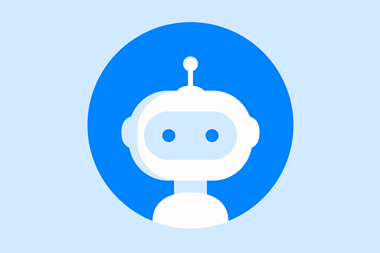More than a dozen chemistry bots that rely on Twitter’s application programming interface (API) to function could become defunct if the social media giant follows through on charging for licences to access the software interface. Under the new rules, Twitter will charge a $100 (£83) per month licence fee for continued access to its API.
While newly created tools already have to pay the API licence fee after the new policy was rolled out last week, the rules haven’t as of yet been applied to existing bots, says François-Xavier Coudert, a computational chemist at the French National Center for Scientific Research.
But ‘they didn’t announce that they would not apply to existing bots’, Coudert notes. While Twitter did say a free version of the API could still be available, it’s unclear whether that’s actually the case and when that applies, he says.
In 2014, Coudert created a bot that automatically posts new papers on metal–organic frameworks on Twitter after scouring journals that publish such papers to identify new content. Now, the tool has just under 12,000 followers, and usually posts around 20–30 papers on Twitter everyday, Coudert says.
Over a dozen other Twitter bots provide similar paper-alert services in different areas of chemistry, Coudert says. Paper bots are mostly used by junior researchers who may not necessarily have a network of colleagues or attend conferences often, he adds. ‘The idea is that either you go to the account when you drink your coffee in the morning,’ he notes, ‘or you just see them appear in your timeline.’
Other bots that integrate cheminformatic tools – that have functions including a 3D molecular viewer, 2D chemical structure editor and retrosynthetic analysis – into Twitter may also be affected by the new rules.
Coudert says he wouldn’t be willing to pay $100 a month to keep his bot running. He notes, however, that a few organisations in the area of porous materials research have reached out to him to offer financial help.
To make sure the bot’s still accessible if Twitter’s new rules are implemented, Coudert made it available on the open social media platform Mastodon since November 2022. ‘But there is not the same level of engagement,’ Coudert says. He has also considered Instagram and other forms of social media.
Carlos Pimentel, a geologist at the Institute of Earth Sciences in France, who runs another bot on chemical garden papers that is based on code from Coudert, says he’s also unlikely to pay for the service. Two weeks ago, he also made his tool available on Mastodon.
Pimentel says his bot saves researchers time from manually scouring through databases like Scopus and Web of Science, which flag a large number of papers that are irrelevant and unrelated to chemical gardens. ‘It’s more easy to find new papers using [the bot] than using other database[s].’












1 Reader's comment